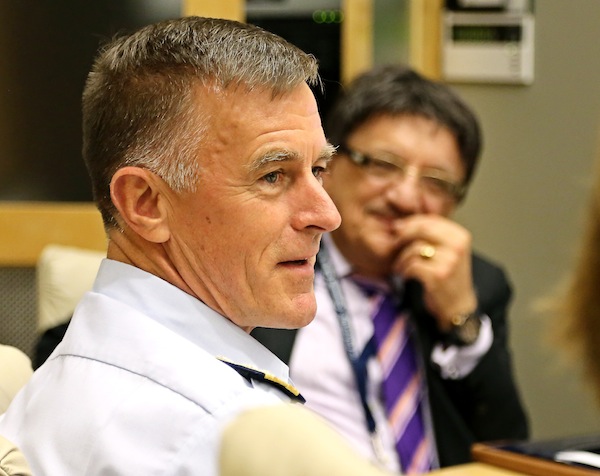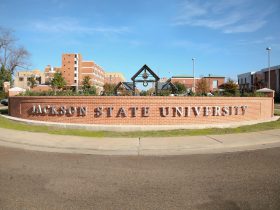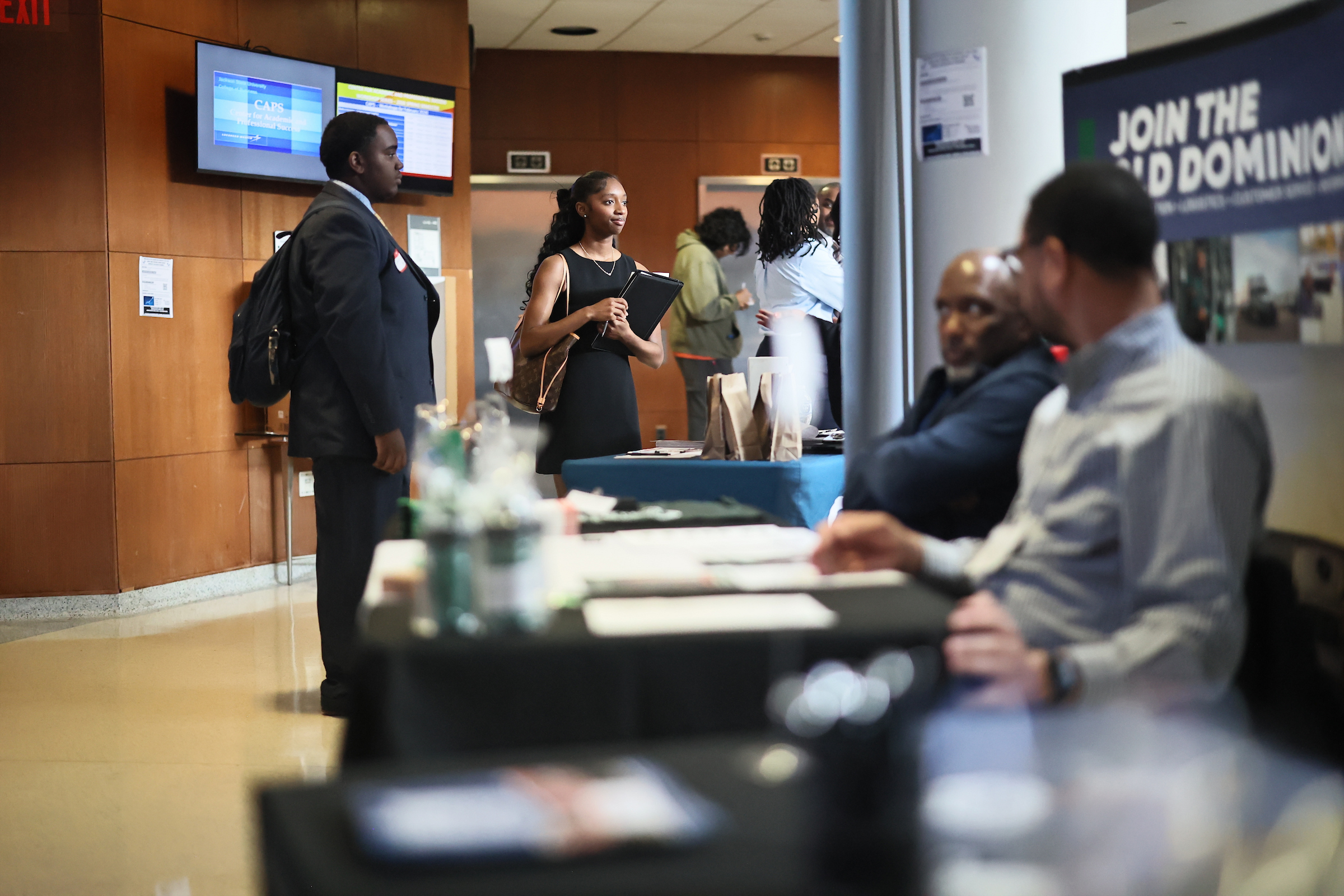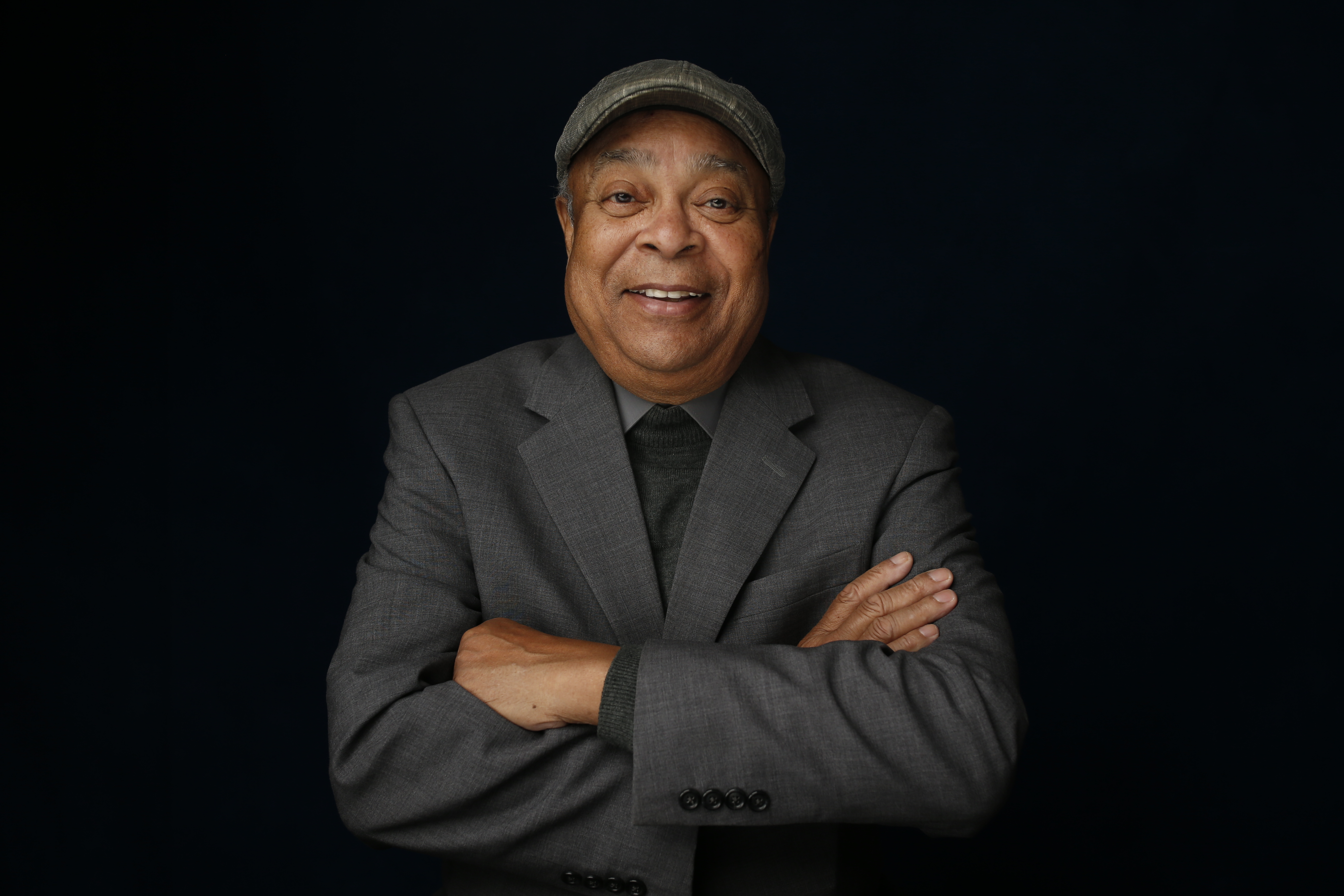Admiral Paul F. Zukunft, the commandant of the U.S. Coast Guard, toured the Jackson State University campus last week and met with university science and technology professors and administrators.
“This is really enlightening to see,” the admiral said following the meeting Thursday.
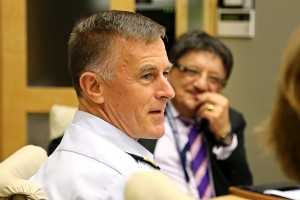
The purpose of the meeting with the admiral and his staff was as an informational session, “so they can see what we do,” said College of Science, Engineering and Technology Dean Dr. Richard A. Alo.
During the meeting at the CSET building, Zukunft seemed most interested in environmental issues and especially regarding the Gulf of Mexico.
“We know more about Mars than we do about the two-thirds water planet,” Zukunft said.
Zukunft had served as the on-scene coordinator for the Coast Guard during the Deepwater Horizon oil spill.
Among the presentations, Dr. Paul Tchounwou, CSET associate dean for Graduate and International Programs and director of the Environmental Science program, gave an update on the effects of the BP oil spill disaster, including: air and water monitoring, methods of containment; environmental mapping; and soil, coastal and marine management protocols.
In addition, Dr. Robert Whalin, director of the Coastal Hazards Center of Excellence, outlined issues of concern, including introducing graduate students working on a potential hurricane storm surge barrier for the Houston/Galveston, Texas, area.
The Deepwater Horizon incident showed “how little we really knew” about the mechanics of the seas, Zukunft said.
Moreover, there are policy implications regarding disasters on our waterway borders, he said. With Deepwater Horizon, he noted, the disaster occurred on water bordered by states with five Republican governors, prompting him to wonder as it was occurring, “Am I managing an oil spill, or am I managing an event?”
Dr. Sudha Yerramilli, interim director of the National Center for Bio Defense Communications and GIS (geographic information system) specialist, outlined geospatial mapping and visual analytics work by JSU.
Zukunft said he had just finished a briefing on climate change issues and the information provided at the meeting was pertinent. “What do we do to take preventive measures?” he asked. Timely, expert advice is critical to the “decision-making window” of national leaders, he said.
Zukunft was also briefed on JSU’s cybersecurity programs by Dr. Gordon Skelton, professor of computer engineering at the Center for Defense Integrated Data, at the Mississippi e-Center @ Jackson State.
“The cybersecurity threat is real,” Zukunft said. In today’s warfare, foreign threats “don’t have to attack our armies. They are going to attack our infrastructure.”
Zukunft was accompanied by his wife, Fran DeNinno- Zukunft, who is Coast Guard ombudsman-at-large. She said her job is helping families make the transition to Coast Guard life, provide information and referral resources and improve communication between the Coast Guard command and family members.
Also in the commandant’s entourage was Coast Guard Commander Zeita Merchant, a former Mississippian attached to his command in Washington, D.C.
Zukunft is the Coast Guard’s top service official, responsible for all worldwide Coast Guard activities. As such, according to the U.S. Department of Homeland Security, he oversees 41,700 active-duty military; 7,800 reserve military part-time employees; 8,300 civilian full-time employees; and 31,000 civilian auxiliary volunteers.



